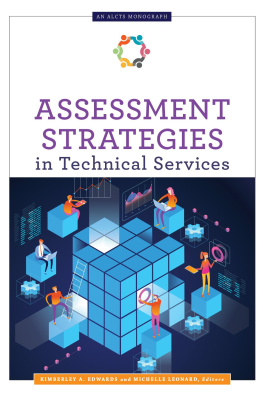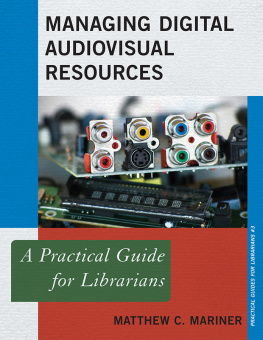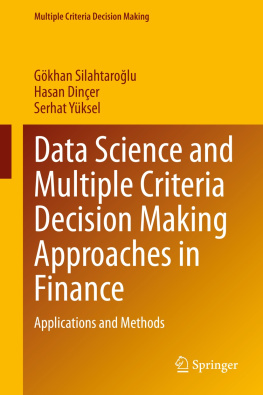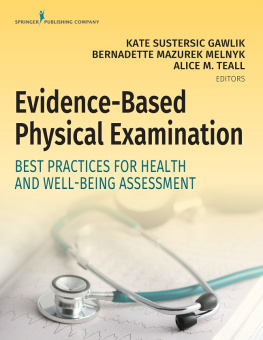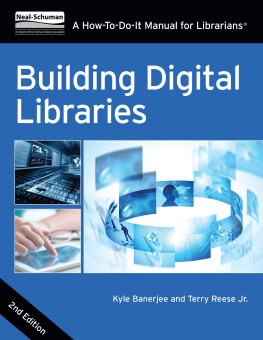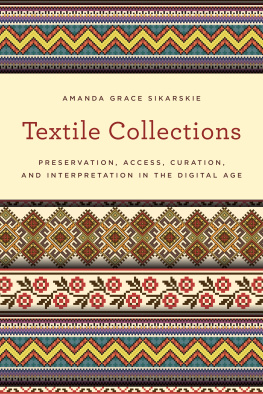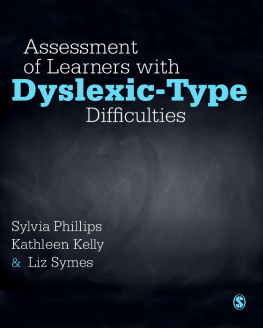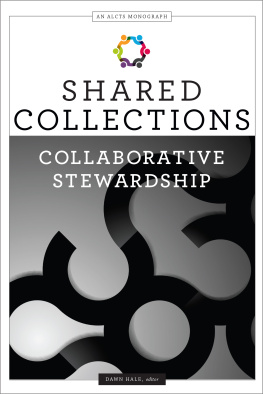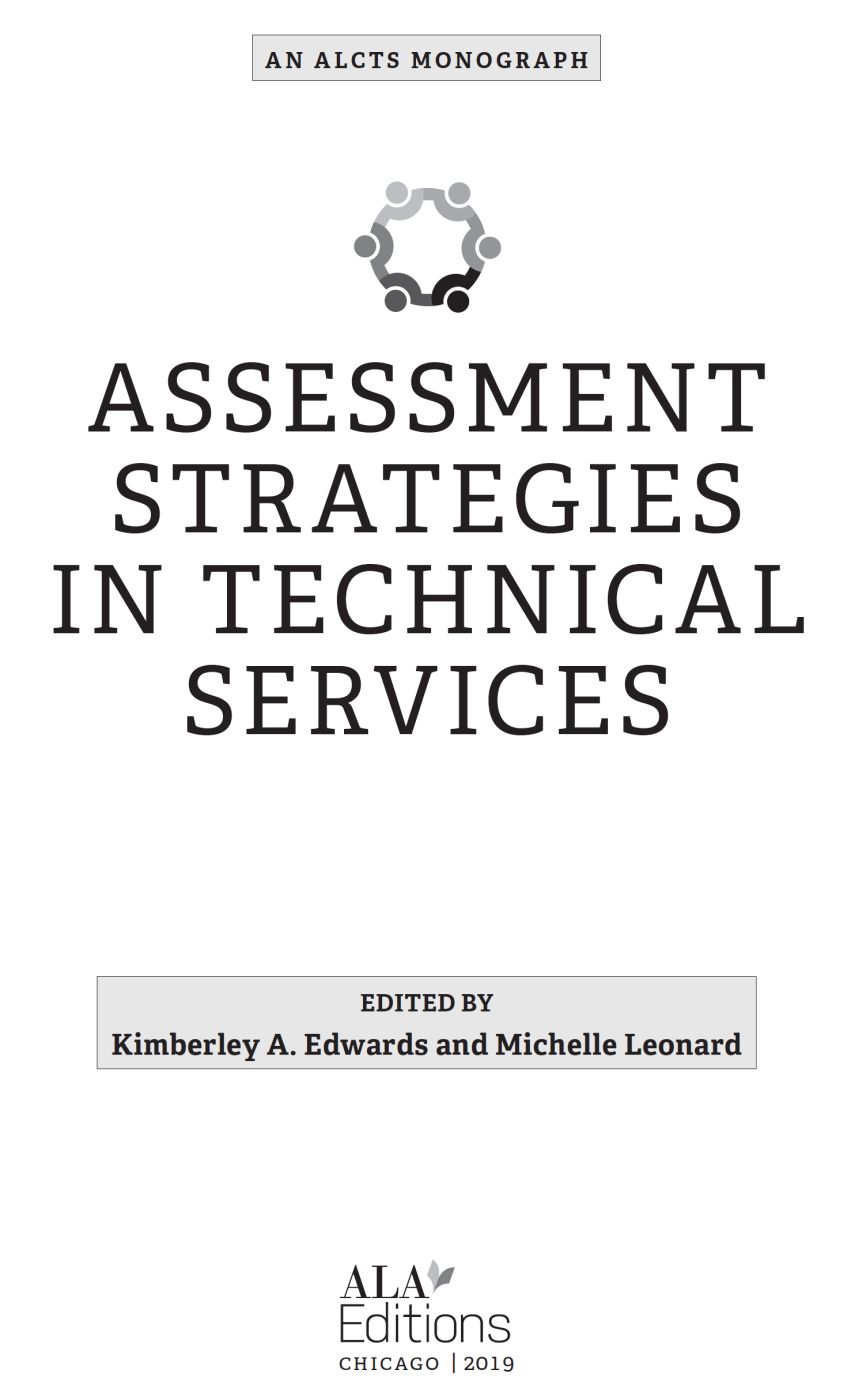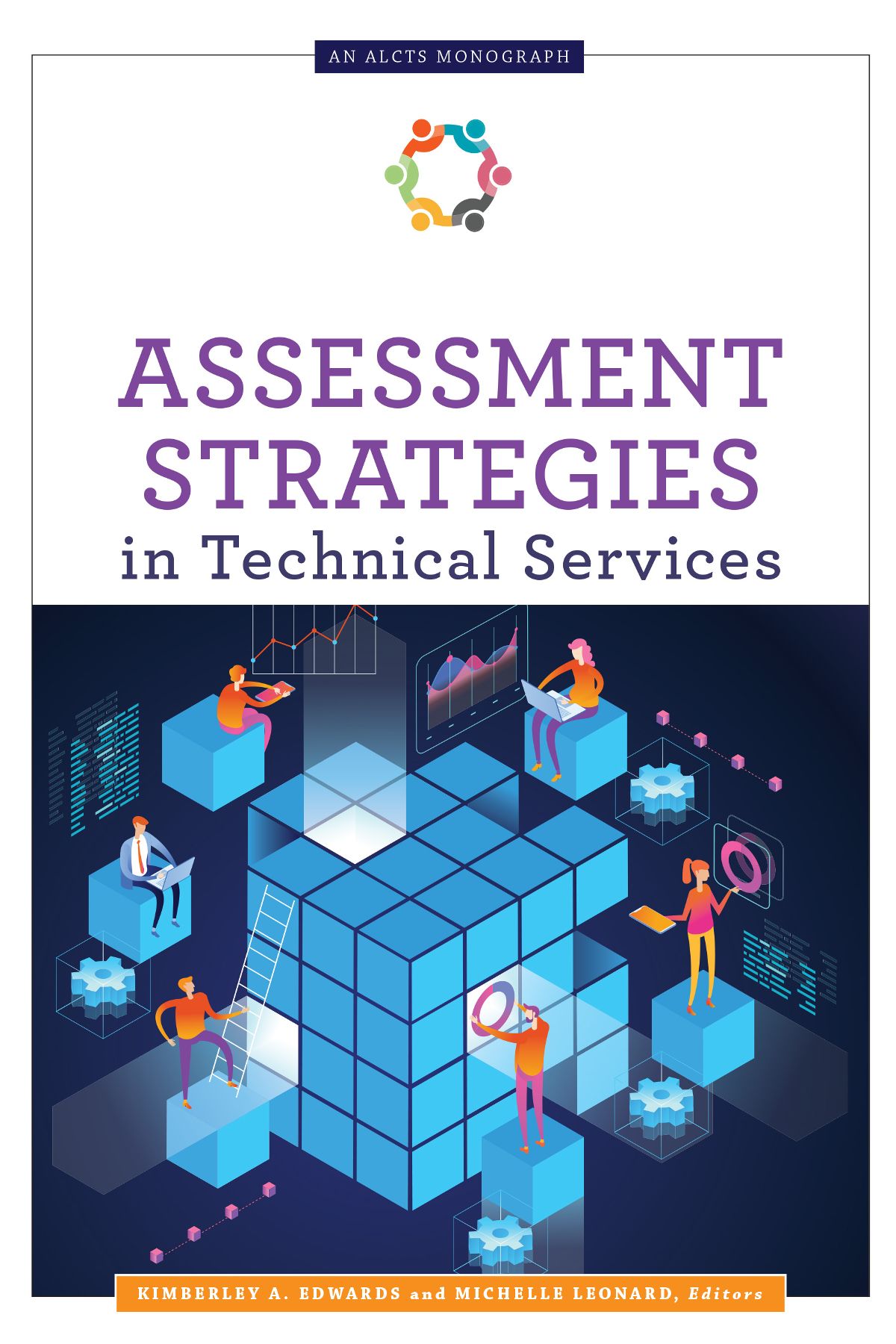
ALA Editions purchases fund advocacy, awareness, and accreditation programs for library professionals worldwide.
2019 by the American Library Association
Extensive effort has gone into ensuring the reliability of the information in this book; however, the publisher makes no warranty, express or implied, with respect to the material contained herein.
ISBNs
978-0-8389-1857-9 (paper)
978-0-8389-1884-5 (PDF)
978-0-8389-1882-1 (ePub)
978-0-8389-1883-8 (Kindle)
Library of Congress Cataloging-in-Publication Data
Names: Edwards, Kimberley A., editor. | Leonard, Michelle, 1968 editor.
Title: Assessment strategies in technical services / edited by Kimberley A. Edwards and Michelle Leonard.
Description: Chicago : ALA Editions, 2019. | Series: An ALCTS monograph | Includes bibliographical references and .
Identifiers: LCCN 2018059760 | ISBN 9780838918579 (paper : alk. paper) | ISBN 9780838918821 (epub) | ISBN 9780838918845 (pdf) | ISBN 9780838918838 (kindle)
Subjects: LCSH: Technical services (Libraries)United StatesEvaluation. | Collection management (Libraries)United StatesEvaluation.
Classification: LCC Z688.6.U6 A86 2019 | DDC 025/.02dc23
LC record available at https://lccn.loc.gov/2018059760
Cover design by Alejandra Diaz. Image Adobe Stock.
CONTENTS
Cecilia Botero and Steven Carrico
Madeline M. Kelly and Stephanie S. Smith
Trey Shelton and Steven Carrico
Kristin Calvert and Whitney Jordan
Karl Pettitt
Fletcher Durant
Nina Servizzi
T his edited volume delves into the assessment strategies used by the various departments in libraries technical services. These strategies encompass a variety of options, including approaches, plans, and policies that should be applicable in a department of any size. The sequence of this books chapters encompasses the technical services life cycle and moves from the selection of materials through their acquisition, their entry into the catalog, and finally to their long-term preservation.
This book commences with an overview of the state of assessment in technical services, in which Botero and Carrico (), Servizzi promotes a vision for the future of technical services and the role that assessment will play in them.
Overall, these chapters will guide the reader into thinking about which strategy best relates to their own library culture. The book includes suggestions on which assessment approach is best utilized, the kinds of project management for which staff must be trained, and how to effectively communicate the various types of assessment to the target audience. This book offers guided expertise on developing a varied array of assessment strategies in technical services, as demonstrated by the authors voices in each chapter.
ASSESSMENT OF TECHNICAL SERVICES
An Overview
Cecilia Botero and Steven Carrico
T echnical services in libraries are responsible for acquiring, cataloging, organizing, and preserving all of the materials in library collections, whether print or electronic. Librarians and staff have been assessing their technical services for many decades. Historically, the staff working in technical services annually collected and compiled a wide range of statistics that were focused mainly on budget expenditures, and on the acquisition and cataloging of books and other tangible materials. Librarians used the gathered statistics for grant writing, accreditation reviews, or for surveys such as the Association of Research Libraries annual statistics. Technical service administrators and unit managers also applied library statistics during staff evaluations, and to monitor and revise the workflows within or between departments. Yet, in the past, these assessment activities in technical services were seldom tied to the larger assessment strategies of the library.
Two influential factors sparked the need to revise traditional assessment and statistical gathering in technical services: (1) the increased importance of efficiently and wisely allocating and expending the librarys material resource budgets; and (2) the need to provide evidence-based information to university administrators and stakeholders regarding the librarys evolving mission, user services, and operations. Since the units and staff handling both the materials resource budget and electronic resources (e-resources) are very often found in technical services, their assessment activities are becoming more crucial than ever. Assessing such things as the librarys annual expenditures for licensed online resources, the usage of e-journal packages and databases, and users preferences are all receiving increased attention by library administrators. In addition to employing the data from assessing budget expenditures and online usage to shape new collection development goals and activities, libraries are finding it necessary to develop assessment strategies in technical services that are measurable, not overly labor-intensive, and repeatable for consistent comparisons from year to year. This chapter will survey the past assessment and statistical gathering efforts employed by academic libraries, since many of these are still very useful and pertinent to libraries regardless of their size or type. The chapter also incorporates the highlights and lessons learned from an assessment project launched at a medium-sized academic library, at the University of Mississippi. This case study outlines the discussion, planning, and steps taken to develop a comprehensive, practical, pragmatic, and sustainable assessment program across the library and its technical services areas. Finally, the chapter will offer several topics for future assessment in technical services.
DEFINING TECHNICAL SERVICES
Libraries, whether academic, public, or special, differ in size, scope, and vision, and thus library technical services vary from institution to institution. Granted, in some libraries the designation of technical services may differ; for example, smaller libraries may have binding operations performed in the serials unit, or they may have the materials budget overseen by the librarys main accounting department. Despite these variances in administrative structure, most technical services are defined by certain core operations and workflows regardless of how units and departments are organized and where the staff reside. In 1954, Tauber recognized acquisitions, cataloging and classification, binding, photographic reproduction, and circulation within the definition and operational parameters of library technical services. With circulation removed from the list, the following areas are considered to be traditional technical services units:
- 1. Acquisitions: includes management of the materials budget
- 2. Cataloging: includes original and enhanced cataloging
- 3. Preservation: includes repair and binding
- 4. Serials and continuations: includes print serial collections and series
With the rise of online resources beginning in the 1990s, the collection-building focus radically shifted in many libraries, particularly those serving academic and research institutions. Users increasingly accessed online resources, and particularly continuing resources such as electronic journals and databases. As libraries scrambled to add additional online resources to keep up with demand, significant changes occurred in collection-building and materials budget management. In the course of this shift from an emphasis on print to online resources, technical services adapted and evolved their areas of operations to include collection management. It is not a stretch to state that online resources are overwhelmingly the largest current influence on library mission statements, user services, budgets, and staffing. For the purposes of this chapter, technical services will include the following areas of operations:
Next page
